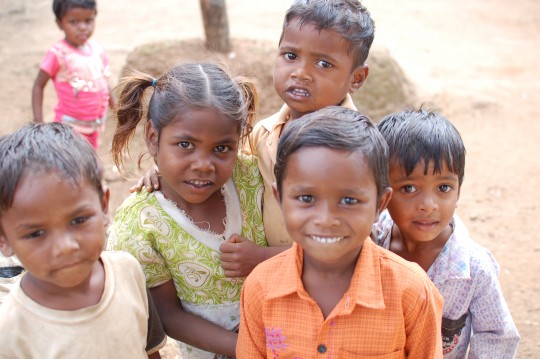Why we think vaccines can outwit pneumonia
|

Pneumococcal disease prevention is a key component of the integrated effort to reduce child mortality from pneumonia and diarrhea—the two leading killers of children. The global health community is hitting these diseases from all sides with a suite of prevention and treatment interventions that leverage common resources, including immunization resources, to enhance efficiency and save more lives. Dr. Alderson sheds light below on the power of current and future pneumococcal vaccines to change the face of child health.
Pneumonia is a clever killer, responsible each year for the deaths of more than a million children under five years old, most of them in the developing world. If you want to know how serious this respiratory disease is, consider one fact: pneumonia kills more young children worldwide than any other disease.
Because pneumonia has many different causes, no one intervention is enough to outsmart it. We need a diverse set of defenses to beat pneumonia, and vaccines top the list as the most cost-effective means of prevention. If we're to outwit pneumonia over the long term, however, the vaccines we have now must continue to evolve and improve.
Taming a complex killer
Vaccination against the leading cause of pneumonia, the pneumococcus bacterium, is essential for controlling pneumonia. In fact, vaccines against pneumococcus help save thousands of children each year—children who likely would have died before these vaccines became available more than a decade ago.
Pneumococcus, however, is a complex bacterium, with more than 90 varieties that vary by region. As a result, prevention to date has required the development of complex vaccines. Pneumococcal vaccines available today use an elaborate and expensive manufacturing process that essentially combines vaccines for either 10 or 13 pneumococcal varieties into a single injection. While these vaccines are saving many lives, they do not provide universal coverage against all disease-causing pneumococcal strains. In addition, it's hard for low-income countries to afford them.
A vaccine to change the game
At PATH, we're advancing the next generation of pneumococcal vaccines to broaden protection against pneumonia—and to ensure accessibility for even the poorest children. One of these candidates, which we've developed in partnership with Boston Children's Hospital, is an inactivated whole cell vaccine designed to generate immunity across virtually all pneumococcal strains. Moreover, it's simple to manufacture, which translates to low overall costs.
Early-stage clinical evaluation in adults in the United States has already shown the whole cell vaccine to be safe and to elicit immune responses thought to be protective. Next, we're planning to test the vaccine in adults and then children in a low-resource country. If the vaccine is eventually licensed, its affordability and broad coverage could make it a versatile option virtually anywhere in the world.
Pneumonia has killed with impunity for most of human history. But we've become smarter about how to fight it—especially through the use of vaccines. Adding a weapon like this new vaccine candidate to the arsenal could help us more quickly make widespread childhood pneumonia deaths a thing of the past, and help end pneumonia's reign as the top childhood killer.














